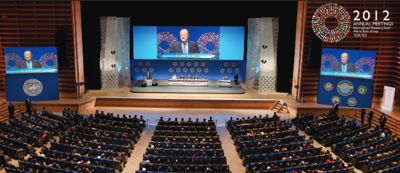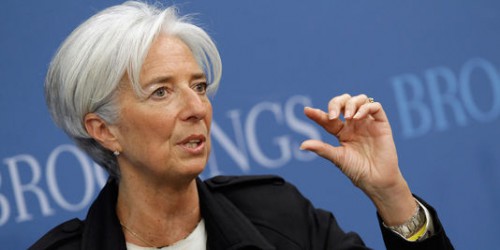Jobbik: “La línea de división es entre tradicionalistas y liberales, no entre naciones o culturas”
Ex: http://paginatransversal.wordpress.com
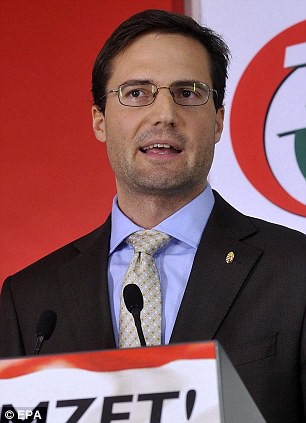 En esta entrevista, el diputado y experto en relaciones internacionales del partido nacionalista húngaro, Márton Gyöngyösi, no sólo nos habla de la campaña electoral que organizan, lanza fuertes declaraciones contra partidos como el Frente Nacional, el FPO de Austria o el PVV de Wilders por las ‘peculiaridades’ de sus plataformas políticas y define cual es la diferencia de movimientos como Jobbik y los partidos antes mencionados.
En esta entrevista, el diputado y experto en relaciones internacionales del partido nacionalista húngaro, Márton Gyöngyösi, no sólo nos habla de la campaña electoral que organizan, lanza fuertes declaraciones contra partidos como el Frente Nacional, el FPO de Austria o el PVV de Wilders por las ‘peculiaridades’ de sus plataformas políticas y define cual es la diferencia de movimientos como Jobbik y los partidos antes mencionados.
¿Cuál es su estrategia de campaña para las elecciones al Parlamento Europeo?
Como usted probablemente sabe, tenemos tres elecciones este año: elecciones nacionales parlamentarias, elecciones al Parlamento Europeo y después elecciones locales. Por supuesto, nuestra relación con la Unión Europea es un tema muy importante, incluso a nivel nacional, pero actualmente no es nuestro principal objetivo. Después de las elecciones nacionales, realizaremos en mes y medio la campaña para las elecciones al Parlamento Europeo. En el 2009, cuando participamos primera vez, llegamos a un resultado muy bueno de 15 % y sacamos tres diputados. Esperamos llegar al menos a dicho porcentaje. Nuestro programa para Parlamento Europeo ya está en camino. Por desgracia, de alguna manera estamos condenados al ostracismo en los medios de comunicación y nuestros mensajes no se difunden. Así que realizamos una campaña muy directa, con mucho más énfasis en el Internet y en los foros públicos.
¿Qué tipo de asuntos son los que esperas plantear en relación con la Unión Europea, tanto en las elecciones nacionales como las elecciones al Parlamento Europeo?
Al igual que en muchos otros países hay una gran cantidad de euroescepticismo barriendo a través de Hungría. En estos tiempos de crisis económica y financiera, mucho de la culpa se ha puesto a la Unión Europea y creo que con razón dada la forma en que esta crisis se ha gestionado y la forma en que la UE se está transformando. Creo que hay mucha resistencia a la continua centralización que la UE ha estado experimentado desde el Tratado de Lisboa, incluso desde el Tratado de Maastricht si quieres.
Creo que la mayoría del pueblo húngaro rechaza esto y creo que estas elecciones van a tratar mayormente sobre el futuro de la UE. Estoy esperando un resultado muy euroescéptico en este país – y en general también. Esto no es sólo Jobbik. Creo que el euroescepticismo está más allá de Jobbik y los partidarios de Jobbik. Ya el señor Orbán está haciendo alusión a un enfoque muy euroescéptico. Él por supuesto está a favor de la UE y ha hecho mucho por la adhesión de Hungría, pero por el momento retóricamente es crítico de la UE. Obviamente son tácticas políticas. Creo que los partidarios incondicionales de Fidesz están hartos de la UE y creo que Jobbik puede esperar votos de ellos. Creo que esa fue una de las razones por las que Fidesz no quería poner las elecciones nacionales y las elecciones al Parlamento Europeo en la misma fecha, a pesar de que hubiera sido lógico. Habría habido una gran participación en las elecciones al Parlamento Europeo, y mucha gente habría realizado un voto de protesta del lado de Jobbik. Pero ellos no quieren un alto rechazo de la UE. Eso habría sido un mensaje terrible hacia Bruselas. Un mensaje positivo desde mi punto de vista.
¿Cuáles cree que son los principales peligros de la creciente integración a la UE?
Sólo veo peligros. En 1991 obtuvimos la candidatura. Si queremos emitir un juicio sobre la UE tenemos que mirar no sólo a nuestros miembros, sino que todo el proceso de adhesión. Se le da a la nación que negocia su adhesión a la UE con Bruselas directrices y es forzada a moverse dentro de ciertos límites. Esto ha tenido un impacto muy negativo en el proceso de transición de Hungría. Se nos dijo liberalizar y privatizar la economía, lo que significó que en unos diez años Hungría vendió la totalidad de su riqueza nacional. Se nos dijo que el capital privado, la inversión privada y la iniciativa empresarial extranjera nos llevarían muy pronto al paraíso. Pero lo que se puede ver es que los países de Europa Occidental necesitan a Hungría más que Hungría necesita de la UE. Ganaron un mercado de diez millones en este país, y cientos de millones si nos fijamos en toda la región. Económicamente, es un paso muy importante para la UE. Geoestratégicamente también. Ellos abrieron las fronteras del euroatlantismo hacia el este por cientos de kilómetros. Esto también se ve en Ucrania. Pero no sólo hay que culpar a la UE y los asquerosos capitalistas de Occidente. Tenemos una élite política en este país – el Sr. Orbán, políticos socialistas como Gyula Horn – que fueron seleccionados para este tipo de política de transición. Ninguno de ellos cuestionó la integración europea o este tipo de transición económica. Sobre de ellos se les puede hacer mucha crítica por la gestión de la transición de un modo por el cual este país ha sufrido más en 25 años que en las dos guerras mundiales. Básicamente hemos perdido toda nuestra riqueza y patrimonio nacional. Básicamente no tenemos nada en manos húngaras en estos momentos. Todo está en las manos de los empresarios e inversionistas extranjeros que compraron fábricas y en algunos casos las destruían.
¿Cuáles son algunos ejemplos de esto?
Nuestra industria alimenticia fue completamente destruida. Solíamos ser capaces de autosuficiencia en la producción agrícola. Sólo para dar un ejemplo, solíamos tener 12 fábricas de azúcar. Eramos completamente autosuficientes y exportabamos el 75% de nuestra producción azucarera. Hoy importamos casi todo el azúcar, porque la producción ha dejado de existir. Sólo hay una fábrica de azúcar en Hungría y es de propiedad de Austria. La UE dice que no se puede producir porque hay cuotas y la cuota es aproximadamente la mitad del nivel de autosuficiencia… ¿Qué pasó con las fábricas? Fueron compradas por empresas extranjeras – empresas francesas y alemanas – y destruidas. Ahora compramos azúcar a partir de las empresas que los han comprado. Así compraron un mercado.
¿Crees que Hungría debe tratar de renegociar los tratados de la UE?
Exactamente. Esa es nuestra propuesta. Queremos un referéndum sobre el ingreso en la UE y queremos renegociar, a partir de nuestro tratado de adhesión.
¿Si se renegocia con éxito será todavía necesario el referéndum?
Depende del resultado. Pero es casi seguro que sí. Yo no creo que sea posible renegociar los tratados de tal manera que nos pareciera bueno y beneficioso para la nación húngara. Se necesitaría una remodelación completa del acuerdo. Teniendo en cuenta la forma de la UE y Hungría en este momento, yo no creo que sea factible o posible.
¿Así que usted piensa en términos prácticos necesario un retiro?
Sí, a través de un referéndum. Nosotros apoyaremos un retiro. Esa es la misma posición que tuvimos en el 2004. Hemos estado haciendo campaña por un modelo de Europa de las Naciones, donde la soberanía nacional es mucho más fuerte y donde la centralización es menos. En 2004 también tuvimos un enfoque muy crítico e trabajamos por la no integración. Lo que hemos visto desde entonces nos ha hecho fortalecido aún más en nuestra creencia.
¿Pero no ha visto efectos positivos de la pertenencia a la UE? ¿No ha habido inversiones extranjeras o relaciones comerciales que hayan beneficiado a la economía húngara?
Es el balance donde necesitamos mirar. Tenemos más de 1000 años de relaciones con Europa. Eso no es una cuestión de adhesión a la UE. Usted no necesita ser parte de la UE para tener buenas relaciones bilaterales. La UE podría haber mejorado las relaciones. Hubo un tiempo en que la UE pueda haber sido una organización basada en la confianza mutua y el beneficio mutuo, allá en los años 1960 o 1970. Pero hoy no es así. Hoy en día funciona más como un imperio que tiene un interés centralista, el interés de los más grandes y más viejos estados-nación en la UE. Ellos están buscando sus propios intereses industriales y subordinan los intereses de todas las demás naciones a eso. Creo que eso es lo que construye gran parte de la frustración dentro de la UE. Y, por supuesto, se han cometido errores. Creo que el euro fue un completo desastre y un completo error. Eso es un análisis económico, no un juicio político. Creo que fue completamente prematuro tener una moneda única en un entorno económico tan divergente. Cometieron un error y la solución que buscaron era aún más desastrosa. Deberían haber ido en una dirección completamente diferente. Ahora están tratando de imponer aún más de esta toma centralista de decisiones.
¿Te refieres a las medidas de la unión bancaria?
Exactamente. La disciplina fiscal y la supervisión de Bruselas. Si un Estado nacional soberano quiere elaborar su presupuesto ese es una cuestión de soberanía. Después de haber aprendido de los errores de Grecia, Bruselas quiere el derecho de anular la política presupuestaria nacional. Eso es una completa tontería. ¿Dónde nos va llevará eso? ¿Aquellos burócratas de Bruselas que no tienen idea de la situación real de la economía en Hungría y lo que el pueblo húngaro necesita o desea van a anular el presupuesto de un gobierno? La política monetaria está centralizada. Ahora la política fiscal va a ser centralizada en Bruselas también. La soberanía nacional ha sufrido mucho en el último par de años. No es de extrañar que en cada país exista algún tipo de oposición con esta dirección.
El político holandés Geert Wilders y Marine Le Pen en Francia han llamado a una alianza pan-europea de partidos euroescépticos. Según informes de prensa, han declarado que Jobbik será excluido por ser demasiado extremista. ¿Cuál es su reacción a esto?
En Europa occidental, los partidos de este tipo tienen un programa que no podemos identificarnos completamente. Su opinión sobre la UE coincide con la nuestra. Creo que tienen la misma idea sobre Bruselas que nosotros. Pero hay una gran diferencia entre ellos y nosotros. Un terreno común entre Wilders, Vlaams Belang de Bélgica, el FPÖ en Austria y Le Pen en Francia – los movimientos radicales de Europa occidental, si quiero generalizar- es la inmigración. Ellos son antiinmigración, y ya que la mayoría de los inmigrantes provienen de países musulmanes tienen una muy fuerte islamofobia y una muy fuerte retórica anti-islámica. En Jobbik, por el contrario, Gábor Vona siempre ha propuesto un diálogo pacífico entre religiones. Él ha estado llamando al Islam una civilización tradicionalista y señalando que todos los tradicionalistas en el mundo – ya sean cristianos, musulmanes, budistas o hindúes – deben unir sus fuerzas y levantarse en contra del liberalismo, que es básicamente un enemigo del tradicionalismo. A través de la propagación del multiculturalismo y el nihilismo absoluto y la ausencia de valores, básicamente está debilitando el tradicionalismo.
En este sentido Jobbik es un partido tradicionalista. Nuestro enemigo principal no es la gente que tiene una cultura o una religión diferentes. El enemigo común de los tradicionalistas, independientemente de su procedencia, es el liberalismo, que quiere barrer con todos los tipos de tradición y cultura. Está propagando un ambiente muy colorido, multiétnico y multicultural. Creo que la línea de división es entre tradicionalistas y liberales, no entre naciones o culturas. Esta es uno de nuestros mayores argumentos con Le Pen y Wilders.
¿Usted no los ve como en el mismo campo tradicionalista que el de ustedes?
No. Yo creo que son totalmente liberales. Absolutamente liberales. Ellos no ven el punto. Lo que temen es que los valores liberales de Europa y de la civilización occidental desde la Ilustración estén en peligro por la inmigración masiva. Así que ellos están protegiendo fundamentalmente los valores liberales de Europa. En este sentido no podemos encontrar la misma plataforma con estos partidos porque vemos el problema completamente diferente. Creo que son parte del problema. Son rebeldes políticos. Como una idea política, es estupendo encontrar un enemigo, dispararle y conseguir seguidores que les apoyen, pero creo que están en el punto equivocado. Es una muy mala señal que los instintos de Europa ya no estén trabajando.
¿Así que piensa que ellos se han negado a trabajar con ustedes y les llamaron extremistas debido a su crítica de los valores liberales?
Esa es la raíz del problema. Pero podemos ir más lejos. Para esta campaña anti-islámica han obtenido el apoyo sionista de Israel. Todos y cada uno de ellos. Puesto que el Islam e Israel, o el sionismo, son enemigos, básicamente han formado un solo frente. Usted puede ver que Strache del FPÖ ha hecho una serie de declaraciones pro-israelíes y recibió el apoyo sionista. Vlaams Belang incluso es financiada por determinadas comunidades sionistas. Wilders también. Ellos ven a la inmigración y el Islam como el mayor peligro, así que fueron con uno de los mayores enemigos del Islam, el sionismo. Es un enfoque completamente lógico. En Hungría tenemos un problema completamente diferente. Si se fija en nuestras declaraciones y lo que representan, hemos estado criticando la política israelí. Hemos criticado el sionismo como un fenómeno global y la forma en que funciona actualmente en el mundo.
¿Ve un riesgo de que esta posición se transforme en discriminación si usted señala a los judíos como agentes potenciales de Israel? Usted hizo una declaración hace unos años de que debe haber una investigación de los miembros del gobierno que cuentan con ciudadanía israelí- húngara.
La doble nacionalidad es un riesgo. Es un riesgo para la seguridad nacional. Quiero estar seguro de que el parlamentario húngaro, algún miembro del gobierno o un funcionario público sea 100% leal y 100% comprometido con mi nación cuando estén haciendo leyes o los lleven a cabo. Todo el mundo piensa lo mismo. En Israel los ciudadanos dobles están excluidos de la Knesset. Si Israel hace eso, entonces ¿por qué se ofenden si exijo lo mismo para Hungría? En Estados Unidos, se tiene que ser totalmente transparente. Cada miembro del Congreso tiene que mostrar a que raza, origen étnico y religión pertenece y qué ciudadanía que tienen. Todo lo que quiero es el mismo tipo de transparencia en Hungría.
¿Haría la misma demanda con otras nacionalidades?
Por supuesto. Si alguien tiene la doble ciudadanía de Zimbabwe-húngara también sería una curiosidad.
¿Lo vería como un riesgo potencial para la seguridad nacional?
Podría ser. Si alguien tiene la ciudadanía significa que juraron a un país en particular. Si juramentas a dos países ¿entonces cuál es la garantía de que pueda excluir su lealtad o su identidad cuando esté haciendo legislación o ejecutando las leyes de otra nación? Hay un conflicto de intereses. Creemos que la doble nacionalidad israelí-húngara es un riesgo aún mayor que con la doble ciudadanía Zimbabwe-húngara, porque hemos oído hablar de las intenciones maliciosas de Sr. Shimon Perez, cuando habló sobre la colonización de Hungría por medios financieros y económicos.
Me gustaría volver a la cuestión de la alianza. ¿Hay otros partidos que tienen una mentalidad similar a la suya y con quien usted puede ser capaz de formar una alianza en el Parlamento Europeo?
La cuestión de la búsqueda de la alianza viene después de la elección. Por supuesto que puedes hacer alianzas si se tiene un programa con puntos en común. Parece que Wilders, Le Pen y Strache tienen este programa común. No lo tenemos con ellos. Pero conseguimos algo hace unos dos años. Nuestro diputado Béla Kovács formó un partido europeo llamado Alianza de Movimientos Nacionales Europeos. Desde el Tratado de Lisboa, es posible que diputados individuales formen un partido internacional –basado en la afiliación individual, en lugar de entre partidos. Esto es todo un logro. Esto demuestra que tenemos algún tipo de poder de negociación. Somos el partido más fuerte en el movimiento radical, por lo que obtenemos una gran cantidad de atención en este campo.
Pero, ¿hay oportunidades concretas de cooperación en la próxima legislatura?
Incluso obtener una fracción es muy difícil porque se necesita muchos países y muchos miembros. Pero yo creo que no es tema de importancia. Es una organización tan inútil, para ser totalmente honesto con usted. Yo no creo que tenga un gran significado si se está en una fracción o sólo ser un miembro no inscrito. No vamos a renunciar a parte de nuestro programa o comprometer nuestros principios sólo para ganar más dinero o para hablar dos veces sobre uno de estos absurdos temas que el Parlamento Europeo está discutiendo, como la curva del pepino.
Pero, para responder a su pregunta, creo que va a ser una elección muy interesante, sobre todo por el creciente euroescepticismo en la UE. La mayoría de los analistas esperan un gran incremento en la influencia de los partidos euroescépticos en el Parlamento. Creo que esto va a ampliar las oportunidades para algún tipo de alianza. En Polonia hay un nuevo partido llamado Ruch Narodowy (Movimiento Nacional). Tenemos una cooperación muy estrecha con ellos. Firmamos comunicados de prensa comunes y ellos vienen a nuestros días y manifestaciones nacionales. También estamos buscando la cooperación en Croacia, donde los distintos partidos están formando un bloque para las elecciones al Parlamento Europeo. Tenemos contactos y relaciones con ellos. Estamos construyendo continuamente estas alianzas. Es esta parte de Europa – Europa Central y Oriental – donde tal construcción de alianzas es razonable y apropiada. En cuanto a los radicales franceses o británicos, tenemos una perspectiva muy diferente y con diferentes problemas.
Dos nombres que rondan entre los medios de comunicación como socios potenciales, que son el Partido Nacional Británico (BNP) y Amanecer Dorado en Grecia.
De acuerdo con los medios de comunicación, somos financiados por Al-Qaeda o por Rusia e Irán. Hay un montón de tonterías en los medios. Con Amanecer Dorado nunca hemos algún contacto. Cuando Gábor Vona fue a Londres dijeron que iba allí para reunirse con Amanecer Dorado. Esto es una locura. En época de elecciones Gábor Vona quiere conocer al electorado. Hay decenas de miles de húngaros que viven en Londres. Fue a reunirse con ellos y hablar de nuestro programa. ¿Por qué él viajará a Londres para reunirse con Amanecer Dorado? Él viajaría a Atenas entonces. Eso son los medios de comunicación para usted. No tenemos esa cooperación. Por otra parte, el líder del BNP, Nick Griffin, se unió a la Alianza de Movimientos Nacionales Europeos con nuestros eurodiputados. Él ya no es un miembro, pero formó parte de este partido.
¿Ve usted una buena posibilidad de una mayor cooperación con el BNP?
Nuestro juicio sobre la UE está convergiendo. Pero una vez más, creo que su posición anti- islámico es algo muy difícil de igualar con nuestra visión del mundo. Estamos buscando una alianza de tradicionalismo en todo el mundo contra el liberalismo. Creo que Europa está sufriendo por el liberalismo. Eso es lo que deberíamos deshacernos en primer lugar ante todo y luego encontrar nuestras propias raíces, nuestros propios valores y nuestras propias tradiciones y construir sobre eso. En lugar de odio y la búsqueda de un enemigo común. Eso no va a llevar a ninguna parte. No nos deshacernos de una de las principales causas de nuestra crisis: el liberalismo, que básicamente ha provocado falta de valores y un destacamento completo de nuestras tradiciones culturales y religiosas.
(Traducido del inglés por Manuel Ortiz)
Fuente: Disidencia



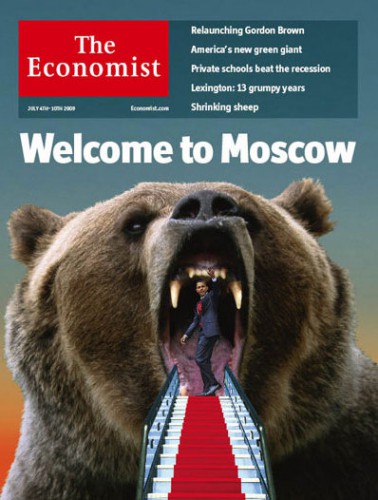 Dans son interview à TF1 et à Europe 1, (4 juin) interrogé par deux journalistes agressifs, Vladimir Poutine, président élu de la Fédération de Russie, a calmement rappelé trois évidences : 1) le budget militaire des USA (Pentagone) est supérieur à la somme de tous les budgets militaires du monde ; 2) les USA, depuis la fin de la Seconde guerre mondiale, sont le pays qui a mené le plus de guerres extérieures, en général dans l’illégalité internationale et sans mandat de l’ONU ; 3) la France a abandonné sa politique gaulliste d’indépendance et de souveraineté vis-à-vis des USA.
Dans son interview à TF1 et à Europe 1, (4 juin) interrogé par deux journalistes agressifs, Vladimir Poutine, président élu de la Fédération de Russie, a calmement rappelé trois évidences : 1) le budget militaire des USA (Pentagone) est supérieur à la somme de tous les budgets militaires du monde ; 2) les USA, depuis la fin de la Seconde guerre mondiale, sont le pays qui a mené le plus de guerres extérieures, en général dans l’illégalité internationale et sans mandat de l’ONU ; 3) la France a abandonné sa politique gaulliste d’indépendance et de souveraineté vis-à-vis des USA.
 del.icio.us
del.icio.us
 Digg
Digg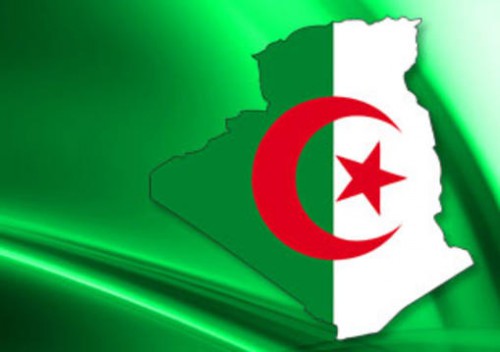
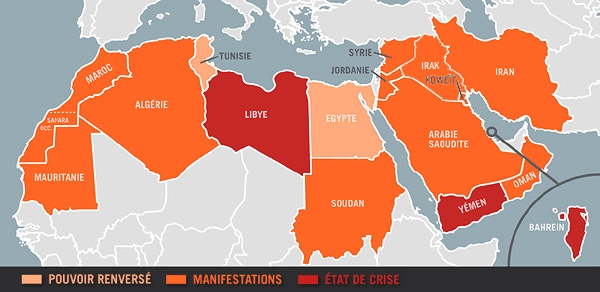
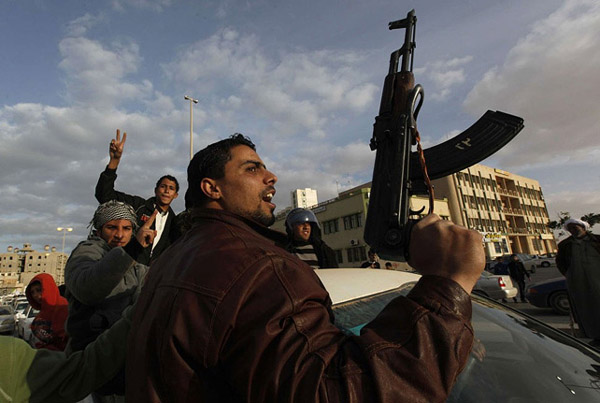
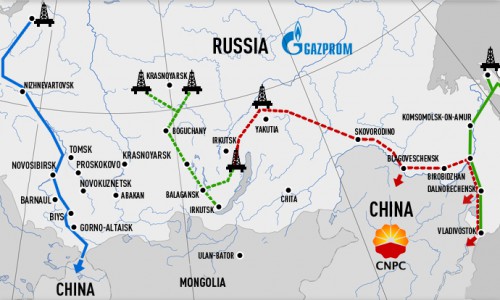


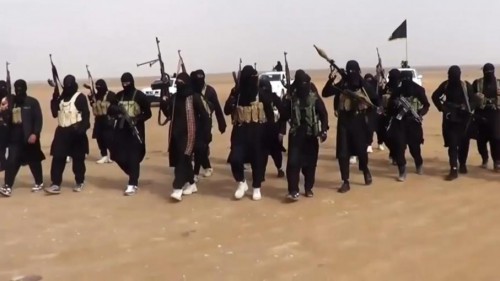
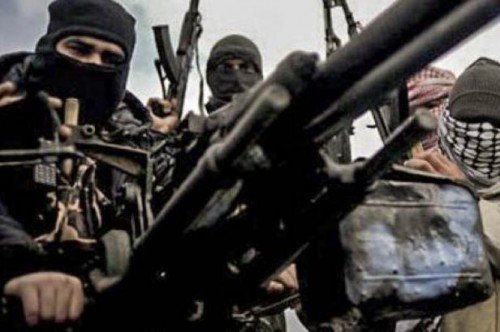
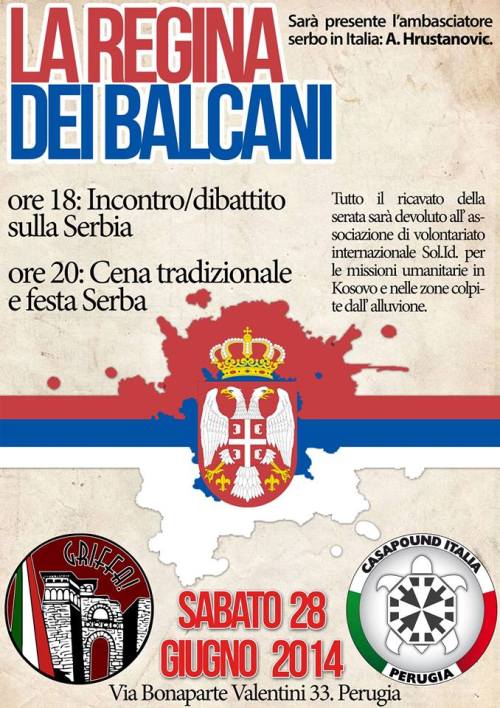
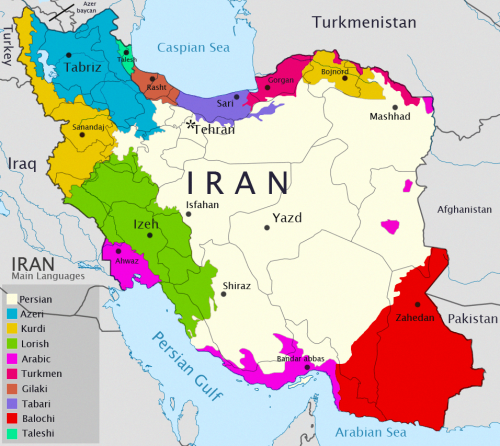

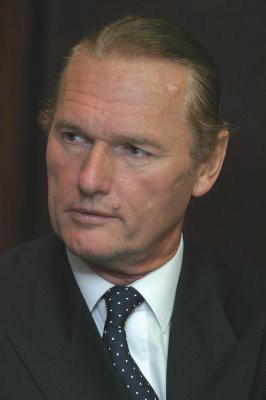
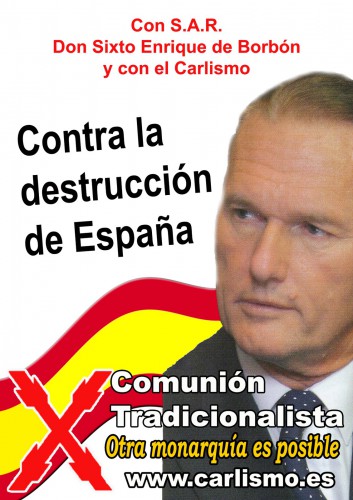
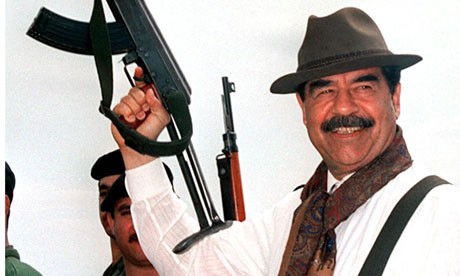


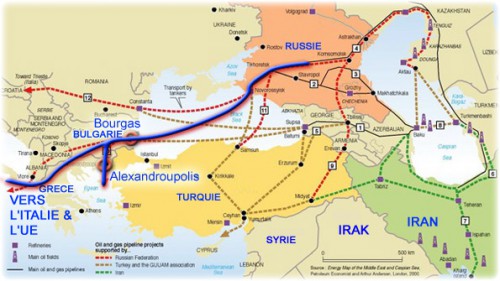



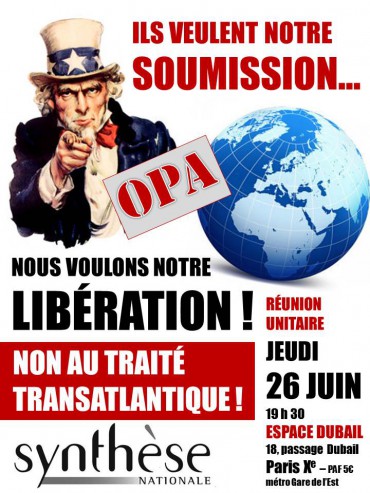

 Relations between Iran and China are as old as history. The two countries, as cradles of the world’s most ancient human civilizations, have been interacting in various fields for thousands of years. During this long period of time, cooperation has been the dominant model governing the relations between Iran and China. The Silk Road stands as the symbol of cooperation and interaction between the two countries during past centuries. Under present circumstances and in continuation of the aforesaid historical model, relations between the two countries are based on cooperation in various political, security, economic and cultural fields.
Relations between Iran and China are as old as history. The two countries, as cradles of the world’s most ancient human civilizations, have been interacting in various fields for thousands of years. During this long period of time, cooperation has been the dominant model governing the relations between Iran and China. The Silk Road stands as the symbol of cooperation and interaction between the two countries during past centuries. Under present circumstances and in continuation of the aforesaid historical model, relations between the two countries are based on cooperation in various political, security, economic and cultural fields. However, in spite of the fact that there are great capacities for the expansion of cooperation between Iran and China, sensitivities caused by the third parties have created serious obstacles in the way of development of bilateral ties. The United States and Israel have played a totally destructive role in their effort to undermine relations between Iran and China. Sanctions imposed on the Islamic Republic by the United States have greatly slowed down long-term cooperation between Iran and China in the field of energy. They have also worked to reduce the pace of foreign investment in Iran and have caused many problems for all kinds of bank transactions between Iran and China.
However, in spite of the fact that there are great capacities for the expansion of cooperation between Iran and China, sensitivities caused by the third parties have created serious obstacles in the way of development of bilateral ties. The United States and Israel have played a totally destructive role in their effort to undermine relations between Iran and China. Sanctions imposed on the Islamic Republic by the United States have greatly slowed down long-term cooperation between Iran and China in the field of energy. They have also worked to reduce the pace of foreign investment in Iran and have caused many problems for all kinds of bank transactions between Iran and China.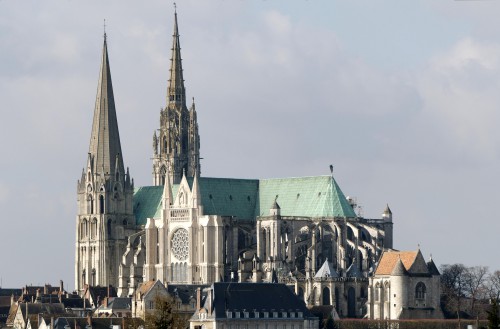
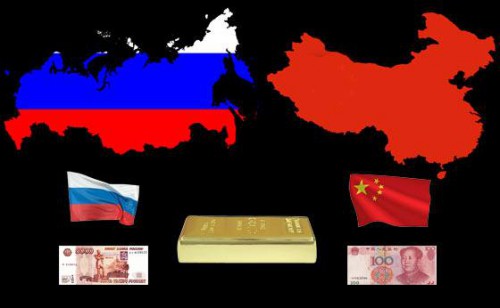
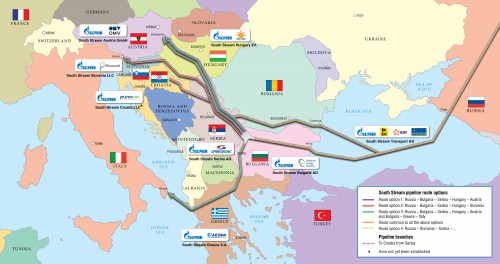
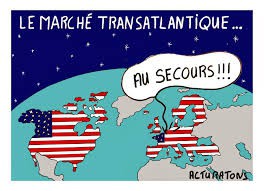 Haciendo gala de la más increíble hipocresía, los gobiernos europeos dicen haber concedido a la Comisión Europea un mandato para negociar con Washington la llamada Asociación Transatlántica dentro del mayor respeto del derecho europeo. En realidad, como ya sucedió anteriormente con el Acuerdo Swift, que pone en manos de las autoridades de Estados Unidos los datos recogidos en Europa sobre los clientes de las compañías aéreas y las transacciones financieras internacionales, se ha orientado a la Comisión Europea implementar la suspensión de las leyes europeas en todo lo tocante a las relaciones con Estados Unidos. Bajo esa perspectiva, la negociación se limita en realidad a determinar los sectores donde los Estados europeos ya no podrán proteger a los ciudadanos de Europa.
Haciendo gala de la más increíble hipocresía, los gobiernos europeos dicen haber concedido a la Comisión Europea un mandato para negociar con Washington la llamada Asociación Transatlántica dentro del mayor respeto del derecho europeo. En realidad, como ya sucedió anteriormente con el Acuerdo Swift, que pone en manos de las autoridades de Estados Unidos los datos recogidos en Europa sobre los clientes de las compañías aéreas y las transacciones financieras internacionales, se ha orientado a la Comisión Europea implementar la suspensión de las leyes europeas en todo lo tocante a las relaciones con Estados Unidos. Bajo esa perspectiva, la negociación se limita en realidad a determinar los sectores donde los Estados europeos ya no podrán proteger a los ciudadanos de Europa.